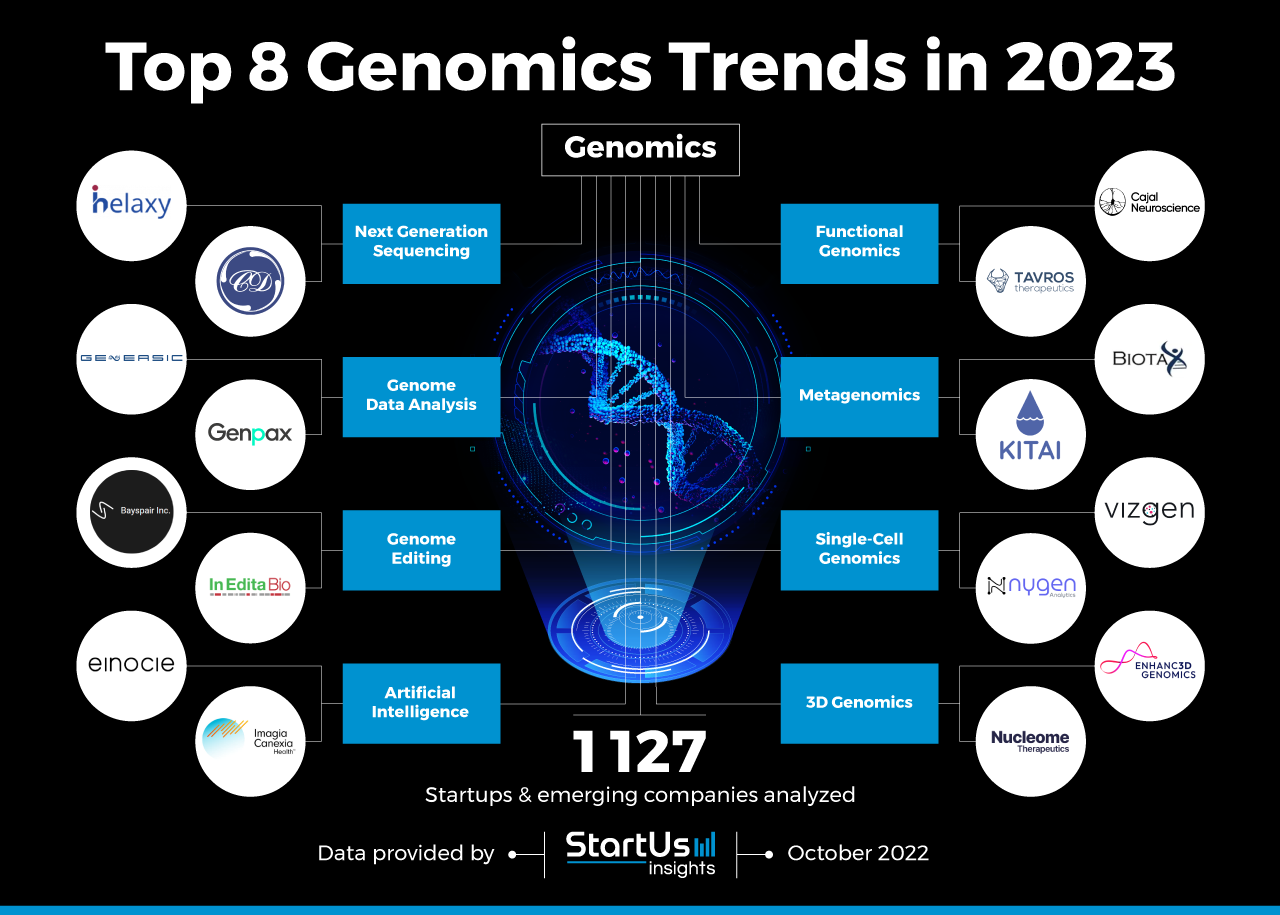Genomics, the study of an organism’s complete set of DNA, has witnessed remarkable advancements in recent years, driven by the convergence of various emerging technologies. These advancements hold profound implications for our understanding of genetics, human health, disease prevention, and personalized medicine. In this description, we will explore the key advancements and their implications, highlighting the transformative potential of genomics in the future. High-Throughput Sequencing: One of the most significant advancements in genomics is the advent of high-throughput sequencing technologies, also known as next-generation sequencing (NGS). These techniques enable rapid and cost-effective sequencing of entire genomes, providing unprecedented insights into genetic variations, disease mechanisms, and population genetics. NGS has revolutionized the field, allowing researchers to sequence the human genome in a matter of days, which previously took years and billions of dollars.
- Precision Medicine: The emergence of genomics has paved the way for precision medicine, a groundbreaking approach to healthcare. By integrating genomic data with clinical information, researchers and clinicians can identify genetic variants that influence an individual’s susceptibility to diseases, drug response, and overall health. This enables the development of personalized treatment plans, tailored to a patient’s unique genetic profile. Precision medicine holds immense promise in improving patient outcomes and reducing healthcare costs by optimizing therapeutic interventions.
- Functional Genomics: Another significant advancement in genomics is the field of functional genomics, which focuses on understanding the function and interactions of genes within the context of biological systems. Techniques such as RNA sequencing (RNA-seq) and CRISPR gene editing have revolutionized our ability to unravel the complex network of gene regulation and identify key molecular players in various diseases. Functional genomics approaches are shedding light on the underlying mechanisms of diseases, enabling the development of targeted therapies and drug discovery.
- Single-Cell Genomics: Traditional genomic analysis relies on bulk tissue samples, which often mask cellular heterogeneity. However, recent advancements in single-cell genomics now enable researchers to study individual cells and uncover rare cell populations, dynamic cellular states, and cellular interactions within tissues. This technology has profound implications for understanding developmental biology, cancer heterogeneity, and immune system function. It opens up new avenues for identifying cell-specific biomarkers, understanding disease progression, and developing cell-based therapies.
- Epigenomics: Epigenetics refers to changes in gene expression patterns that do not involve alterations in the underlying DNA sequence. The field of epigenomics investigates these modifications, including DNA methylation, histone modifications, and non-coding RNA molecules. Advancements in epigenomic profiling technologies have revealed critical insights into gene regulation, cellular identity, and disease mechanisms. Epigenomics has the potential to uncover novel therapeutic targets and facilitate the development of epigenetic therapies for diseases such as cancer, neurological disorders, and cardiovascular diseases.
The implications of these emerging technologies in genomics are far-reaching. They offer the potential for early disease detection, precise diagnosis, targeted therapies, and preventive interventions. Genomic research is advancing our understanding of rare genetic disorders, complex diseases like cancer, and infectious diseases, leading to breakthroughs in diagnosis and treatment. Additionally, genomics is reshaping our understanding of human evolution, population genetics, and the impact of environmental factors on health.
However, the advancements and implications of genomics also raise ethical, legal, and social considerations. Questions regarding data privacy, informed consent, equitable access to genomic technologies, and the potential for genetic discrimination must be carefully addressed. Ethical frameworks and policies are essential to ensure responsible and equitable use of genomics in healthcare and research. In conclusion, the advancements in genomics, driven by emerging technologies, have transformed our understanding of genetics, human health, and disease. These advancements have the potential to revolutionize healthcare through precision medicine, targeted therapies, and personalized interventions. As we continue to explore the vast complexities of the human genome, it is crucial to navigate the ethical challenges and ensure the responsible and equitable application of genomics for the betterment of individuals and society as a whole.








